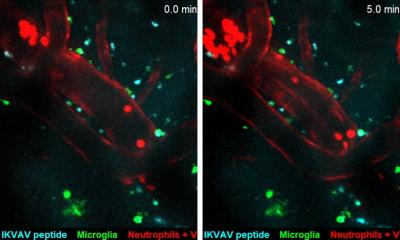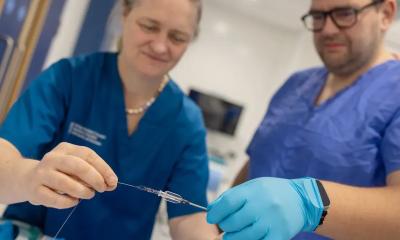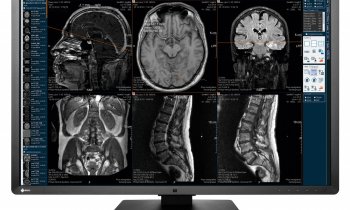Neurology
“Stroke clearly is a brain disease”
“The medical rationale for stroke being a disease of the brain is overwhelming.” This is the key message of an urgent appeal launched by leading neurology experts in The Lancet.1 The authors are making public their concern about the classification of stroke in the draft revision of the “International Statistical Classification of Diseases and Related Health Problems” (ICD) after an unexpected and uncoordinated change in the classification scheme made by WHO staff.
The ICD-10 currently in place is based on outdated medical knowledge and concepts from the 1980s. The new ICD-11, which has been under discussion since 2009, is aimed at reflecting the changes in science and practice.
“There are very good reasons that we agreed five years ago, in a transparent process and after extensive debate in the WHO Neuroscience Topic Advisory Group and with WHO representatives, that all types of stroke should form a single block in the new classification that should be part of the nervous system disease chapter”, explained Prof Raad Shakir, head of the advisory body and President of the World Federation of Neurology. “All manifestations of cerebrovascular disease are related to brain dysfunction. The relationship with dementia and particularly Alzheimer’s disease is becoming clearer.”
According to Prof Shakir, the unilateral decision by WHO staff to move the newly created cerebrovascular thematic block from neurology to circulatory disease is not only incomprehensible, but also “did not follow the expected transparency of WHO decision-making.”
“The main purpose of any enduring classification should be to serve the interests of patients, which is not the case unless stroke is acknowledged as being a brain disease”, the authors of the comment cautioned. “The latest classification decision with respect to stroke needs to be reversed in order to safeguard patient care and provide correct figures and funding for health care provision.”
1 Revising the ICD: stroke is a brain disease. Raad Shakir, Steve Davis, Bo Norrving, Wolfgang Grisold, William M Carroll, Valery Feigin, Vladimir Hachinski; The Lancet, published online 13 October 2016: http://www.thelancet.com/journals/lancet/article/PIIS0140-6736(16)31850-5/fulltext?rss=yes
Source: World Federation of Neurology
18.10.2016










